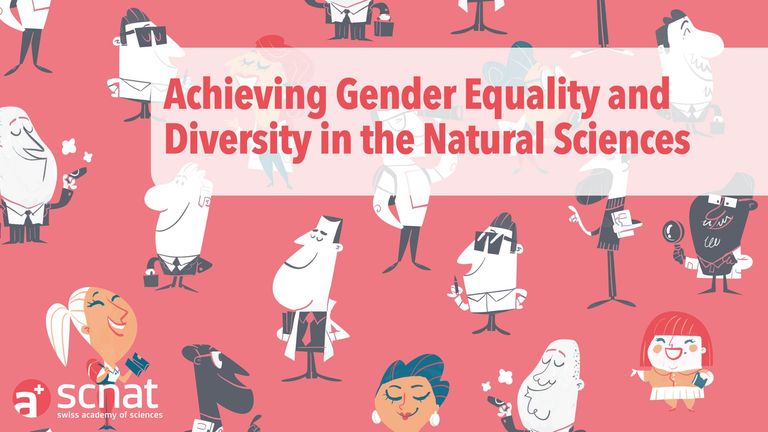Sujets correspondants

«Prendre en compte la diversité des genres est bon pour la science»
18.4.2023 – Le fait d’attendre de la part des femmes qu’elles se comportent et agissent telles que leurs collègues masculins, notamment pour satisfaire aux critères d’excellence actuels, les femmes sont nombreuses à quitter le domaine scientifique après leur doctorat ou leur post-doc. Pour colmater cette brèche, il convient d’élargir l’éventail des possibilités de carrière, des modèles de comportement et de travail acceptés.
Image : zvg
Le succès des femmes à des postes de direction scientifique doit gagner en solidité
17.10.2022 – Le succès des femmes à des postes de direction scientifique remet en question les stéréotypes de rôles et suscite ressentiment et résistance. La réussite repose d’une part sur l’effort et la performance personnels et, d’autre part, elle reflète une adaptation à la structure du pouvoir scientifique et au soutien d’autrui. Reconnaître que le succès comporte des facteurs systémiques et collectifs est une condition sine qua non pour que la réussite des femmes puisse être solide.
Image : zvg
I want it! Career experiences by young scientists
Female junior and advanced scientists, yet without a permanent position, share their experiences and their expectations regarding gender equality and diversity. They will present their career path and indicate highlights and hurdles of their professional development. During the panel discussion individual experiences as well as the role of institutional and societal boundary conditions will be addressed.
Image : pixelfarm
I did it! Experiences from leading scientists
Women who have attained leading positions may on their career path have been confronted with specific, gender related challenges. During the panel discussion, female professors and leaders will inform about their career path. They will include highlights and motivation of their career, the hurdles that they have encountered, and their solutions to overcome them. The interviews will address the significance of individual versus institutional and societal boundary conditions. Finally, the webinar aims to present experienced leaders to inspire young female scientists.
Image : pixelfarm
Rethinking excellence
The term “excellence” is extensively used in academic research to justify and target funding and recruitment decisions and policies. In this webinar, we invite our participants to an open critique of the concept of excellence. The Better Science Initiative calls for a rethink in academia towards more sustainability, diversity and equal opportunities.
Image : pixelfarm
The role of funding policies and the use of quota
The allocation of financial support for research by academic institutions or by funding agencies may have a major impact on gender equality in science and research. This webinar explores the potential and limitations of gender quota in the recruitment and financial support of women in academia.
Image : pixelfarm
